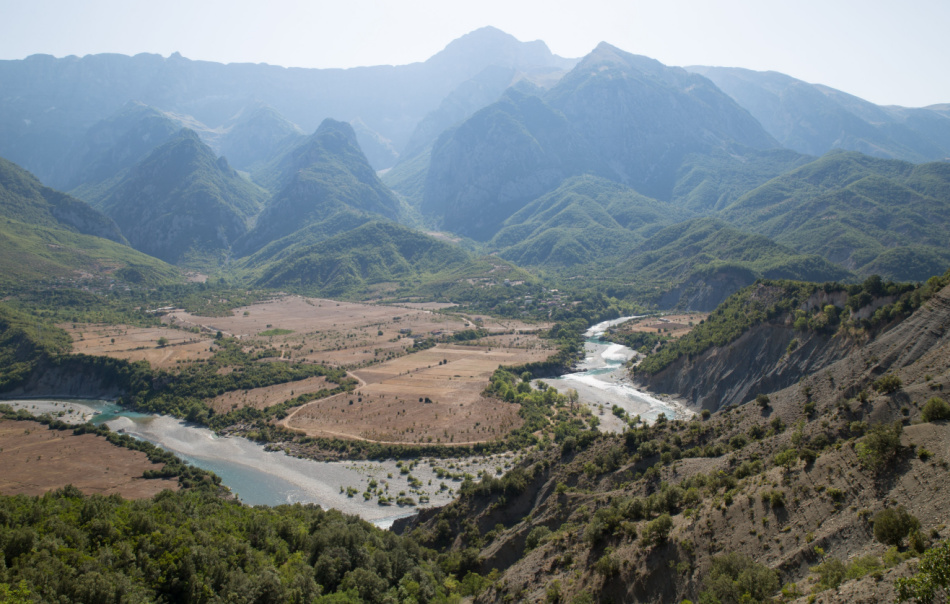The Vjosa, one of Europe’s few wild rivers, has become Europe’s first national park.
From the Pindus mountains in Greece to the Adriatic coast, the Vjosa River flows 168 miles. It supports otters, the rare Egyptian vulture, and the extremely endangered Balkan lynx, of which only 15 are estimated to remain in Albania.
Vjosa: Europe’s first wild river national park
45 hydropower projects were planned for the Vjosa’s delicate ecology for years—But, last week, after a nearly decade-long struggle by environmental NGOs, Vjosa was designated as Europe’s first wild river national park. Activists called it a historic decision that has propelled the little Balkan country to the forefront of river protection.
Edi Rama, Albania’s prime minister, announced the park at Tepelena castle overlooking the river in front of stakeholders and ministries. He called the national park’s formation “truly historic” for nature and social and economic growth.
“Today we protect once and for all the only wild river in Europe,” he said. “This is about to change a mindset. Protecting an area does not mean that you enshrine it in isolation from the economy.”
According to the prime minister, national parks attract 20 percent more tourists than unprotected places.
A symbol of the country
Albania’s tourism and environment minister, Mirela Kumbaro Furxhi, said the park was part of the country’s continued liberation three decades after communist rule.
“Vjosa is a symbol of human history and also a very important part of the history of our country,” she said. “Maybe Albania does not have the power to change the world, but it can create successful models of protecting biodiversity and natural assets, and we are proud to announce the creation of this first national park on one of the last wild rivers in Europe.”
Ecotourism is intended to revitalize Vjosa communities, which received 7.5 million visitors last year, more than twice its 2.8 million population.
The 12,727-hectare park, a collaboration between the Albanian government, international experts, NGOs from the Save the Blue Heart of Europe campaign to protect Balkan rivers, the International Union for Conservation of Nature (IUCN), and Patagonia, the outdoor clothing company and environmental organization, protects the Vjosa and its unique ecosystems. IUCN category II park status gives it wilderness-like protection. “Large-scale ecological processes,” species, and ecosystems are classified to prevent dams and gravel mining. It will launch in 2024.
IUCN’s European director Boris Erg praised Albania’s leadership and ambition. “Today marks a milestone for the people and biodiversity of Albania,” he said. “We invite other governments in the region and beyond to show similar ambition and help reach the vital goal of protecting 30 percent of the planet by 2030.”
What will the park offer?
The park will cover 118 miles of the Vjosa in Albania, three significant tributaries, and some land, including flood-prone areas. Phase II adds tributaries. It will allow recreational tourism and local fishing, especially for the catchment’s 60,000 population, unlike the IUCN’s Wilderness Protected Areas.
The Albanian and Greek governments signed a memorandum of agreement in January to build the Aoos-Vjosa transboundary park to safeguard the entire river.
According to a 2020 EU research in 28 countries, Europe has the most blocked rivers in the world, with over a million dams, weirs, and fords, all of which hinder natural life in some way.
Conservationist and founder of Riverwatch and part of the Save the Blue Heart of Europe campaign, Ulrich Eichelmann, stated: “Most people in central Europe have never ever seen a wild, living river, free from the impacts of human interference, that isn’t diverted or dammed or built up with embankments and where biodiversity is low as a result. But here, you have a wild river, full of complexity and without interference.”
Eichelmann thought it might inspire more protections for wild rivers.
Patagonia President Ryan Gellert said the partnership showed the power of teamwork. The park showed that “destruction of nature did not have to be the price of progress,” he remarked.
The non-profit Holdfast Collective, founded in 2022 when the corporation declared Earth its sole shareholder, has donated $4.6m to assist the national park and safeguard wild Balkan rivers.












